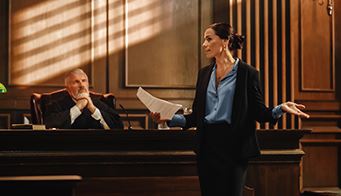Desk Appearance Tickets Can Have Serious Consequences
Being arrested is a frightening and confusing experience. You can be handcuffed in public or in front of friends or family. Being fingerprinted and photographed is a humiliating experience. Often, with little explanation, the police may tell you not to worry and that the judge will go easy on you while you’re being hurried out of the precinct with a desk appearance ticket. The police were in a big hurry to put handcuffs on you and put you in a jail cell but claim that you shouldn’t worry. Which is it? When you go to court, you may be surprised by an angry prosecutor who is detailing your crimes in open court and demanding a punishment that you weren’t expecting.
As an experienced criminal attorney, I’ve seen many tragic outcomes which started as a desk appearance ticket that wasn’t taken seriously. I’ve received countless phone calls from people who’ve gone to court alone only to end up with an outcome that wasn’t fair and that they want to change. A few even face felony charges although it started out as a misdemeanor on their desk appearance ticket. Unfortunately, you don’t generally get a ‘do over’ in criminal court. Convictions are usually permanent. In a phone conversation with a doctor, I had to tell him that, unfortunately, the thing he pled guilty to in Manhattan Criminal Court would have to be disclosed on his employment application. He sighed and asked me, “do you know how much time and money I spent getting to this point in my career?” Unfortunately, he contacted me after he had gone to court by himself and after the damage was already done. I felt bad for him because if he had a capable attorney with him in court, he would have been better prepared and made better decisions about how to handle his case.
As the crime rate recedes from its highs in the 1990s, society is becoming a little more sensitive to less serious crime. On an employment questionnaire at the height of New York’s murder rate, it may have been enough that the applicant didn’t have a felony conviction. Now, I’m starting to see more and more employers ask about “any offense” which would target even some common non-criminal violations such as disorderly conduct.
What can be done to prepare for court? Don’t go alone. Make sure you find a New York attorney who (1) focuses on criminal law, (2) has relevant experience, and (3) you feel comfortable with. An ounce of prevention is worth a pound of cure.

